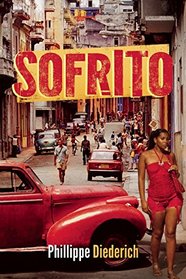Search -
Sofrito
Sofrito
Author:
"In this entertaining debut novel, Frank Delgado tries to save his failing restaurant by returning to Cuba, his dead father?s homeland, to get ahold of a top-secret chicken recipe. But there is more than delicious chicken at stake here. Food is the road home?geographically, emotionally, metaphorically. Peppered with cooking advice from chefs, or... more »
Author:
"In this entertaining debut novel, Frank Delgado tries to save his failing restaurant by returning to Cuba, his dead father?s homeland, to get ahold of a top-secret chicken recipe. But there is more than delicious chicken at stake here. Food is the road home?geographically, emotionally, metaphorically. Peppered with cooking advice from chefs, or... more »
ISBN-13: 9781941026144
ISBN-10: 1941026141
Publication Date: 5/12/2015
Pages: 304
Rating: ?
ISBN-10: 1941026141
Publication Date: 5/12/2015
Pages: 304
Rating: ?
0 stars, based on 0 rating
Genres:
- Literature & Fiction >> World Literature >> United States >> Hispanic
- Literature & Fiction >> General >> Literary
- Literature & Fiction >> Genre Fiction >> Historical >> Cultural Heritage
- Mystery, Thriller & Suspense >> Mystery >> International Mystery & Crime
- Mystery, Thriller & Suspense >> Thrillers & Suspense >> Spies & Politics >> Espionage




